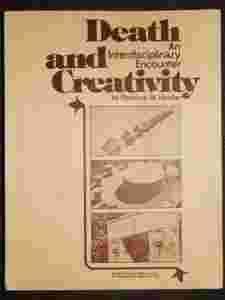FREFACE
lrI had three chąirs In my house; one for solitude, two for friendship, three for society.Ml
French Festival Day
July 13, 1974
Cape Vincent, New York
Today whlle serving as a hostess at the Community House Museum in this smali, lovely village, I saw and felt some of the reasons that must have entered into the processive changes in my philosophical thinking over the years, and also into my having Initially written or translated the es-says collected in thls book. The book Is presented in conjunction with the Foundation of Thanatology in New York City and with the Center for Interdis-ciplinary Creativity at Southern Connecticut State College, New Raven, Con-necticut.
On this day, Napoleon, who was to have spent his exile in this vil~ lage was honored; the early French settlers of the area, including Vincent Le Ray de Chaumont, who once owned the property on which I am now writing, and where I have spent many summers of my life, were also honored. The peo-ple of the village honored the llying/dead, their ancestors, their share in the ndwellinglv In which we all share, and of which Saint-Exupery speaks in his Wisdom of the Sands,2 namely, the In-dwelling of man and things in tnan and things on the planet and beyond its confines, Today, the descendants of the French and many others met, shared, moved consciously in their histori-city; they encountered in community, in creativity. Old and young shared not only Napoleonie reallty, but shared themselves, and an exhibition of welded sculpture by Richard Merchant, an octogenarian whose ancestors came from France in 1832 and are buried nearby In the town of Rosiere, named after the town Rosieres, France, from which they came. Finitude and creativity shared finitude and creativity; people saw the artist actually in the process of cre-ating his work of art on the back of his farm truck. For me, this day is much of what life Is about. The whole town celebrated the Iiving7dying past and the liying/dying present to help create a better future In community, in love, in creativity.
Some time ago I started to teach philosophy. You might cali It nabstractir philosophy, if there is such a discipline. Then I turned to the history of philosophy. Perhaps, through study of Josiah Royce, Heraclitus and Leibniz, the im-portance of the individual, of the need for the issuance of thought Into action, into community, into love, forced me to see the fertile meaning of the abstract only in the conerete. This led to my involvement in the philosophy of love, of the person, of touch and of community. Finally, I realized that one of the reasons why we loved one another.why we could love another deeply In a truły human manner, was our mutual finitude, our materiality, our subjectivity to the crea-tivity of materiality and finitude, to our fragility and mortality. We are or can be beautiful, liying/dying creatures, but are not sufficiently aware of what it means to be materiał, fragile and mortal. In a real sense, to be finite and to be mortal is to be beautiful. And to be mortal is to be vulnerable, to weep at hurts,
ix

